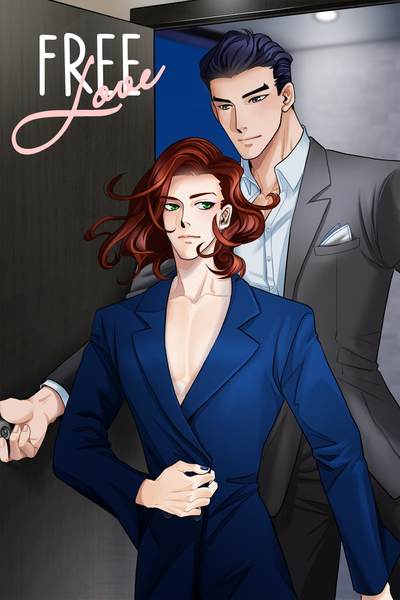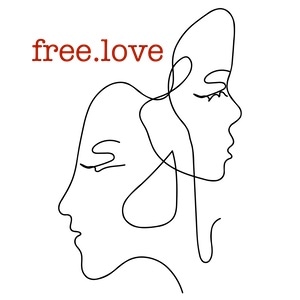Content Warning—Implied intimate partner violence and discussion of suicide.
***
Alex Anderson closed the exam door behind him and strode silently down the hall to his office. He opened the office door calmly, stepped inside, and shut it quietly behind him. Then he sent Fred the Educational Skeleton flying across the room with one upward swipe. He snarled, still unsatisfied, and kicked the trashcan across the room, sending wads of paper flying all over the floor.
“GOD DAMN IT,” he roared, trusting in the thickness of the office walls to mute him.
He fell down into his office chair and leaned back. He closed his eyes and stabbed his fingers through his hair, pulling at the roots until it hurt.
This one is gonna leave a mark.
He would never get used to the struggle his clinic patients went through.
With his eyes closed, he could see the hollow look in Gabriel Cooper’s eyes again. Great big long-lashed, green eyes. Reddened by tears, dilated in fear as he looked at Alex and automatically thought of his Alphan attacker. He had been fighting for control, trying his damnedest to be brave in a shitty, horrifying situation.
Alex hoped Dr. Charles, the clinic psychologist, would help Gabriel Cooper realize that as far as bravery went, he had succeeded far beyond what anyone could reasonably expect of another human.
Alex had never understood how another Alpha could look at the faces of his patients, at their smaller, more vulnerable bodies, and feel the urge to hurt and shove and tear and take.
All his life, even before his sister Anastasia’s death, he had been taught to believe in the inherently equal value and importance of all people, regardless of things like gender or trait. In every person’s right to bodily autonomy and their right to exist as they saw fit. That had, unquestionably, applied to Omegas as much as all other people.
His parents were old-fashioned, sure, but his mother was no meek, silent Omegan help-mate. She may have retired from the workforce to raise her children, but she had indisputably been the engine that kept the family and his father’s professional life moving smoothly and advancing steadily. On the surface, she was all charm, good taste, and consideration, but nobody crossed Victoria Park-Anderson or her family. At least, not twice.
Alex had been a high school junior when his older sister Anastasia had gotten engaged to William R. Page III. Perfect-on-paper proto-finance-bro Bill Page III hadn’t been especially interested in a lanky, studious, science geek like Alex, and Alex, in return, had been inherently disinterested in gaining insight into his sister’s love life.
He knew that Ana and Bill had met at a debutante ball when Ana was a college freshman. They had dated steadily through four years at William & Mary where she majored in political science and he majored in finance. Bill proposed atop the Eiffel Tower over Christmas Break of their last year of college. Everything was picture-perfect. On paper.
He knew that his mother, Victoria Park Anderson, had always been an outstanding judge of character, and she had never warmed to Bill. Although she had no particular reason to dislike Bill, she had urged Anastasia to consider all her options, to take things slow rather than rushing into marriage at twenty-two.
Anastasia had been insistent about going through with the wedding, however. The couple were married the following June, in a perfect ceremony at the Cathedral of Mary Our Queen, on a perfect date carefully chosen for auspiciousness, and on their perfect honeymoon in Antigua, Bill had finally claimed Anastasia. No claims before marriage had been a non-negotiable rule in the conservative Anderson household that even headstrong Ana had dared not violate.
With the wedding and the claim had come the control. After the honeymoon, bit by bit, the Andersons saw less and less of Anastasia. When they did see her, she was thinner and withdrawn. Her smiles and laughter had grown strangely brittle. She flinched and jumped at sudden noises or movements.
She claimed her weight loss was the result of exercising and dieting to fit into sample sizes. She claimed her jumpiness was a result of stress at work. Unanswered calls and unpaid visits were blamed on busyness.
Six months after the wedding, Anastasia got pregnant and was over the moon. Then a miscarriage. She wore long sleeves to the family’s annual Fourth of July party despite the ninety-five degree weather. A few months later, another pregnancy. Then another miscarriage. She grew even thinner, disappearing before their eyes.
Victoria had filled her fridge with food, had begged her to come to a doctor, to a psychologist, even to a lawyer. Anastasia refused visits and stopped taking calls. Victoria had no choice but to back down temporarily, afraid to push her daughter even farther away.
In late September came a late-night phone call from Ana’s number, but when Victoria answered, a police officer responded to her frantic greeting.
Anastasia was gone. An apparently deliberate overdose on pain killers that a doctor that none of them had ever heard of had prescribed. There was a note that contained nothing but an apology to her family, making no mention of her husband. The Andersons found all of their Christmas presents already wrapped and tagged in her closet. She was her mother’s daughter in that regard, polished and always prepared.
Anastasia's autopsy had uncovered unexplained bruising and a healing spiral fracture on her left radius. There was a recent crack in one of her ribs. Bill Page reported that she’d recently slipped and fallen on the stairs outside their home and had refused care for her injuries. There was no one who could testify otherwise.
Fixated on justice for her daughter, Victoria had called every single friend and colleague of Ana’s that she could find, but Ana had never spoken to anyone about what happened in the Page home when she was alone with her husband. Without a single witness, there was nothing that the law could do for the Andersons, even though Alex’s father Leo, a federal judge, had significant pull.
Everyone had loved Ana, but no one had been able to save her.
In the end, Victoria Anderson achieved some degree of vengeance. She pulled every string she had at her disposal until Bill Page’s lucrative hedge fund manager position vanished out from under him overnight. No other respected firm would touch him, not in Baltimore, not in DC, not in New York.
His social network reacted similarly. Even his parents cut him off rather than share the black cloud of rumor and scandal that surrounded him. By the time he left Maryland, Bill Page couldn’t get an invitation to test drive a Camry during Toyota-thon. The last Alex had heard, he was toiling in obscurity as a financial planner somewhere near Columbus, Ohio.
If Bill Page had even the slightest instinct towards self-preservation, he would never come anywhere near the Andersons again.
Driving Bill away did little to alleviate the family’s devastation over the loss of Anastasia. Until her marriage, the “system,” the privilege that had allowed them all to flourish, had been like water to a fish—sustaining, supporting, invisible.
Neither of his parents had loudly championed the cause of Omegan Rights before Ana’s death. Neither of them had needed to, because in Alex and Ana’s lifetime, every member of their family had been able to achieve anything they were willing to work for. The Andersons had followed life’s rules, and they had been rewarded with a loving marriage between compatible mates and beautiful, high-achieving children.
After Ana’s death, things changed. Once Victoria succeeded in dismantling Bill’s life, she became uncharacteristically purposeless, void of interest in her home, her social circle, her charities, her husband’s career, even Alex’s schooling. Uninterested in life, in short. At night, Leo drank too much and shut himself up in his study.
As for Alex? He had buried himself in school and then college applications and career plans. He had already planned to go to medical school, one of the four acceptable career outcomes in their social circle, but now he had a specific goal to achieve when he graduated. More than a goal. A calling.
One truth had become abundantly clear to Alex—no Omega should ever have to be trapped by an unasked-for or unsafe claim. If Ana had been able to truly, permanently escape from Bill Page, she might have felt hope. She might have stuck around to tell Alex what a gigantic nerd he was, to help him pick out a college, or to buy him funny socks and quirky boxers at Christmas.
Claim reversal procedures were rare, but not unheard of. There were claim-reversal clinics in New York, Minnesota, and California, but there were none near Baltimore or DC for Ana or Omegas like her. Alex was going to change that. He had spent time learning about claim reversals and had discovered that there was a desperate need for both researchers and practitioners. Alex was going to be both.
He applied for early decision to the University of Virginia pre-med program and was accepted. He informed his parents of his plans. To his surprise, despite the heated controversy surrounding claim-reversal treatment, they did not object. The opposite—for the first time in months, Victoria was energized. She took up the cause. If Alex wanted to perform claim reversals in Baltimore, she’d find a way to make it happen.
Victoria began fundraising and lobbying with the goal of opening a clinic at Johns Hopkins within a decade. As Victoria embraced the cause of claim-reversal access with a fiery passion, she began to resemble herself again. As Alex’s mother healed, the grim expression on his father’s face faded. He stopped disappearing into his study.
The Andersons smiled again. Sometimes they laughed.
They weren’t ever going to be the same perfect-on-paper family, but they had purpose. They had a broader understanding of the world. They hoped for a better future.
Alex powered through his time at UVA in three years, taking summer classes and intersessions. He wanted to board-certify in two disparate specialties after med school, which would delay his ability to start practicing in either. He continued at UVA for med school and then matched in endocrinology at the Mayo Clinic, learning from some of the best claim-reversal specialists on the planet. From there, he moved on to UCLA for plastic surgery.
At thirty years old, Alex finally returned to Baltimore, armed with the knowledge, skills, and certifications he needed. Victoria had not wasted a moment of the decade that Alex had spent training. The Anastasia Anderson Omegan Health Clinic opened at Johns Hopkins the following year.
Since the clinic had opened, Alex, Susan, Teneisha and their colleagues had helped hundreds of Omegas achieve a fresh start. The world, however, had not evolved as quickly as the Andersons.
Right-wing anti-claim-choice protestors crowded the sidewalk outside the clinic threatening and jeering at patients with signs bearing slogans like “It’s a Shame to Reverse a Claim!”, “Alphas First!”, “God Hates Claim Cutters!”, “God is the Alpha and the Omega!”, “Nature Knows Best!”, “An Omega’s Place Is In the Home!”, and “Forced Claims Are False Flags!”
Despite the opposition, the patients and the clinic staff pushed forward. Slowly, so slowly, far too slowly, they were making progress. Alex’s frustration with the legal obstacles they frequently encountered, however, was mounting. There was little legal recourse for an Omega who had been claimed against his or her will or who was being abused by their claiming Alpha.
It was often difficult to get Omegas into the clinic in time for successful treatment. States like Florida had even made it illegal for Omegas to seek claim-reversal without the permission of the claiming Alpha. Laws aside, Omegas faced significant social stigma if they sought claim-reversal, yet another deterrent to seeking timely treatment.
Gender essentialists, so called “Alphan Rights” supporters, and religious conservatives all pushed loudly and publicly against the Omegan Rights movement in general and claim reversal in particular. The Claim Reversal-Access movement needed to expand its outreach beyond clinics, and so did the Anastasia Anderson Foundation. They would have to work on the body politic and not just the Omegan body.
The sound of the fallen trash can rolling away from the office door as it opened snapped Alex out of his spiraling thoughts. He sat up to see Susan standing in the doorway surveying the mess he’d made.
“Whoa. Did you and Fred get into it or what?” she asked, standing in the doorway and staring at the pile of articulated bones on the floor.
“No, I had a meltdown and Fred was an innocent bystander who got caught in the crossfire. I don’t know, Susan. Some days I get so sick of it, sick of bad laws and lack of laws, sick of the anti-claim-choice wingnuts and their signs out there scaring my patients, sick of Omegas being treated like property, sick of my patients being terrified–even of me… I don’t know…” He shrugged.
“Gabriel Cooper really got to me,” he admitted finally.
Susan winced. “Yeah, me too. He’s a sweetheart. But he’s still got his spark. You did a great job with him, you even got him to laugh. I think he’s gonna do well, not just medically, but generally. We’re making that possible for him. At least we’re out there doing something.”
Alex fiddled with a pencil on his desk, listening, wanting to be consoled, but still frustrated beyond words. “Yeah, but not as much as I want to do, and not as fast as I want to do it. Nothing’s going to happen to the son of a bitch who assaulted him.”
“Hey. The laws can change, society can change, the science will absolutely improve, and we’re a part of all of that. We’ve already come a long way. We can’t help them all, Alex, but we can help that one who just left here.”
“Oh, I will definitely help that one. I’m gonna ‘control+z’ that Alpha’s claim so smoothly and thoroughly that Gabriel Cooper himself won’t be able to find the spot where it used to be. He is absolutely getting his fresh start. And you’re right about the progress. I was just having a moment. Maybe I’ll make an appointment with Liza Charles, too.”
“Never a bad idea. We all have bad moments. Now, apologize to Fred, reset his bones, finish your charts, and go home. Have a beer with your cat.”
“Sounds like a plan.”













Comments (44)
See all